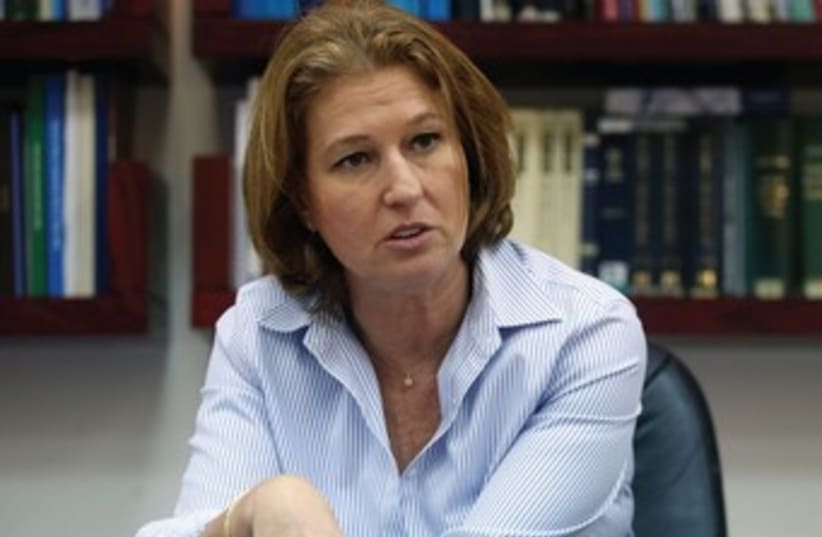Israeli’s top two negotiators with the Palestinians were scheduled to leave Sunday night for Washington and continued talks with US Secretary of State John Kerry about the document he is expected to present in the near future to form the basis of continued negotiations.Justice Minister Tzipi Livni and Prime Minister Binyamin Netanyahu’s envoy Yitzhak Molcho are to meet with Kerry and his staff members, including the US special envoy Martin Indyk. This is apparently in lieu of yet another trip to the region by Kerry.Netanyahu, who is to travel to Davos later this week, is expected to meet in Switzerland with Kerry, who is to be in Geneva for Syrian peace talks. Palestinian negotiators are expected to travel to Washington next week to meet Kerry.
Israeli diplomatic officials, who would not confirm Palestinian reports that a summit is being planned in Aqaba under the auspices of Jordanian King Abdullah II to present the document later this month, said only that the “process is ongoing.”Netanyahu, meanwhile, said at the opening of the weekly cabinet meeting on Sunday that the imbalanced and “one-sided” approach by some European countries to the Israeli-Palestinian conflict was pushing peace “further away.”Netanyahu, during his comments, took note of UNESCO’s decision last week to cancel an exhibit charting the relationship between the Jewish people and the land of Israel, and remarked wryly that the reason given for the cancellation was that it would harm the Israeli-Palestinian negotiations.“This would not hurt the negotiations,” he said. “Negotiations are based on facts, on the truth, which is never harmful. But what does harm the negotiations is the automatic summoning of Israeli ambassadors in certain states over matters of no substance, while significant violations by the Palestinian Authority pass without any response.”Netanyahu was referring to the decision by Britain, France, Italy and Spain last week to call in Israel’s ambassadors in those countries to protest the recent decision to build 1,400 housing units in the major settlement blocs, and in the Ramat Shlomo neighborhood in northern Jerusalem, beyond the pre-1967 lines.Israel, in a tit-for-tat move, called in the ambassadors of those countries stationed in Tel Aviv to protest the protest, and say that these countries do not act in a similar manner when the PA incites toward Israel’s destruction or its security officers participate in terrorist acts.“This one-sided approach does not promote peace, but rather pushes it away,” Netanyahu said.According to Netanyahu, these types of protests against Israel strengthen the Palestinian Authority’s refusal to make progress in the negotiations by creating the impression that it will not be held accountable for any of its actions.After six months of negotiations, there are still believed to be enormous gaps between Israel and the Palestinians on everything from borders, to security matters, refugees and the issue of recognition, let alone how to resolve conflicting claims on Jerusalem.Livni, Molcho head for Washington to confer with Kerry on peace talks
After six months of negotiations, there are still believed to be enormous gaps between Israelis, Palestinians.
